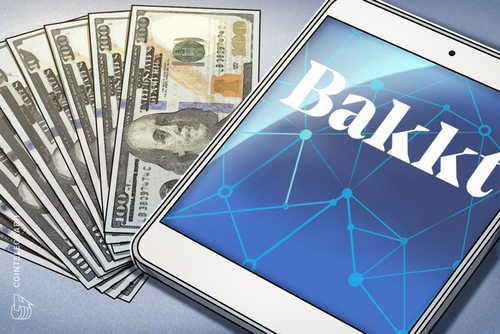The latest available reports for the contract, Jan. 24 and Jan. 27, reveal that 11 days have elapsed since the last trade.
Little more than a month after their launch, Bitcoin options contracts on the Intercontinental Exchange’s digital asset platform Bakkt appear to have seen sluggish uptake.
As reported, Bakkt launched its new BTC options contract in early December, shortly after rolling out a cash-settled Bitcoin futures offering in November.
Traders bide their time
Options are derivatives that are designed to provide traders with additional flexibility hedge against an asset’s price swings in either direction: thus an options contract offers them the chance to purchase either a right to buy (a call option) or sell (a put option) the given asset at a specified “strike price” determined on or before the contract’s expiration date.
Both the new options contract and cash-settled futures followed upon Bakkt’s existing physically delivered Bakkt Bitcoin (USD) Monthly Futures contract – a pioneering product that was the first in the industry to give futures traders direct exposure to the underlying cryptocurrency.

As reported, the physically-settled futures contract had met with underwhelming volumes in its early days – a fact that was immediately unfavorably compared with the fiat-settled BTC futures on CME, which first went to market in December 2017.
Yet uptake for the product eventually picked up, in correlation with a period of volatility in Bitcoin’s spot market valuation at the time (late October-November 2019).
Aside from Bakkt, market participants including Malta-based cryptocurrency exchange OKEx and CME have both launched or plan to launch Bitcoin options contracts this year.
Bitcoin News Summary – December 16, 2019
The United States Department of Justice arrested key figures in the BitClub Network ponzi scam. The scam is said to have pulled in over $722 million and remains active in several countries, such as Japan and South Africa. In 2016 our 99 Bitcoins website warned readers of the risks of the BitClub Network.
Popular BitMEX options trading platform and its founder, Arthur Hayes, are involved in a major lawsuit. A seed investor in BitMEX’s early funding, Frank Amato, is seeking $300 million. Amato claims that his initial $30,000 investment was not converted into equity in the exchange as agreed.
According to research, roughly two-thirds of Bitcoin mining is occurring in China. A single province, Sichuan, is estimated to control 54% of the hash rate. The total Chinese hashrate is thus up 6% from June of this year. While this is bad news for Bitcoin’s mining decentralization, the good news is that 73% of mining power is said to be from renewable energy sources; mostly hydropower.
Hydra, a Russian darknet marketplace for trading contraband like drugs and hacking services, is seeking to raise $146 million through an ICO. The ICO will be conducted over the darknet and the tokens will supposedly grant investors shares in the marketplace. This ICO should be considered incredibly risky, as it may prove to be a scam, get participants in legal trouble, or both. However, it’s notable for being perhaps the first instance of public crowdfunding by a criminal enterprise.
Before we conclude, this week’s “Bitcoin quick question” is what will happen to mining when all 21 million Bitcoins are mined?
Today, there are over 18 million Bitcoins in circulation. The mining reward, currently 12.5 Bitcoins, halves every 4 years, with the next halving happening around May 2020. It is presumed that by the time all Bitcoins are mined, transaction fees would be enough to compensate miners for their work. Don’t worry, this won’t happen until around the year 2140. To learn more about this topic visit the link in the description.
